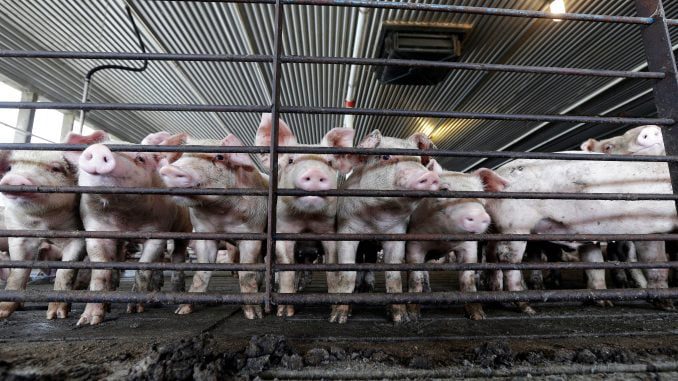
RALEIGH — The N.C. Farm Act of 2019-20 was signed into law by Gov. Roy Cooper in June, but provisions regarding hog farms in the bill were fielding criticism before it was signed.
Angie Maier, director of government affairs and sustainability for the N.C. Pork Council, spoke with North State Journal about some of the misinformation about the legislation’s handling of swine farms and waste lagoons.
The N.C. Farm Act of 2019-20 arose from Senate Bill 315, a bill that some critics claim renders swine farmers’ public records exempt from public inspection.
“Contrary to what some advocates have claimed, the intent of this provision is NOT to shield information about the swine industry,” said Maier in an email to North State Journal.
There is no such language in the law nor is there a special confidentiality protection for the hog industry. What the law does do is apply the same confidentiality at the state and federal level to that of the water conservation district level.
Another claim made by critics is that the N.C. Farm Act of 2019-20 creates a loophole for new hog farm expansion, but the language of the law shows no such loophole, and no regulations are loosened or removed.
Per the language of the law, “The Commission shall not issue or modify a permit to authorize the construction, operation, or expansion of an animal waste management system that serves a swine farm that employs an anaerobic lagoon as the primary method of treatment and land application of waste by means of a sprayfield as the primary method of waste.”
It was 23 years ago in 1997 when the General Assembly first imposed a moratorium on the expansion of hog and swine farms, which became permanent in 2007. Under these moratoriums, any new swine farm seeking to open or existing farm wanting to expand had to meet five environmental standards which are extremely strict and expensive. Due to the strict nature of the moratoriums, no new hog farms have opened in North Carolina, and only a single expansion permit has been issued since 1997.
Under the act, hog farms can cover existing swine manure treatment lagoons or opt to replace lagoons with methane digesters. Such digesters are used to create a source of renewable energy via the capture of biogases.
The use of digesters is also in line with Senate Bill 3, enacted the same year as the permanent moratorium in 2007. That bill included a requirement that utilities include the use of electricity produced from swine waste. Maier says that the “vast majority” of the electricity produced from swine waste is from biogas, which is produced by methane digesters.
“This provision makes clear that an existing swine farm can be issued a modified permit to make changes to the manure management system,” Maier told North State Journal. “And it continues to not be subject to the economically prohibitive standards required of a new farm — so long as it does not result in an increase to the existing permitted capacity on that farm.”
Maier said that since 2011, the N.C. Dept. of Environmental Quality has issued more than 20 permits to swine farms either to cover an existing swine lagoon or replace the lagoon with a methane digester. She also noted that these permits were issued for the purpose of harvesting biogas interest and that interest among farmers for this type of technology advancement and farm improvement is growing.



